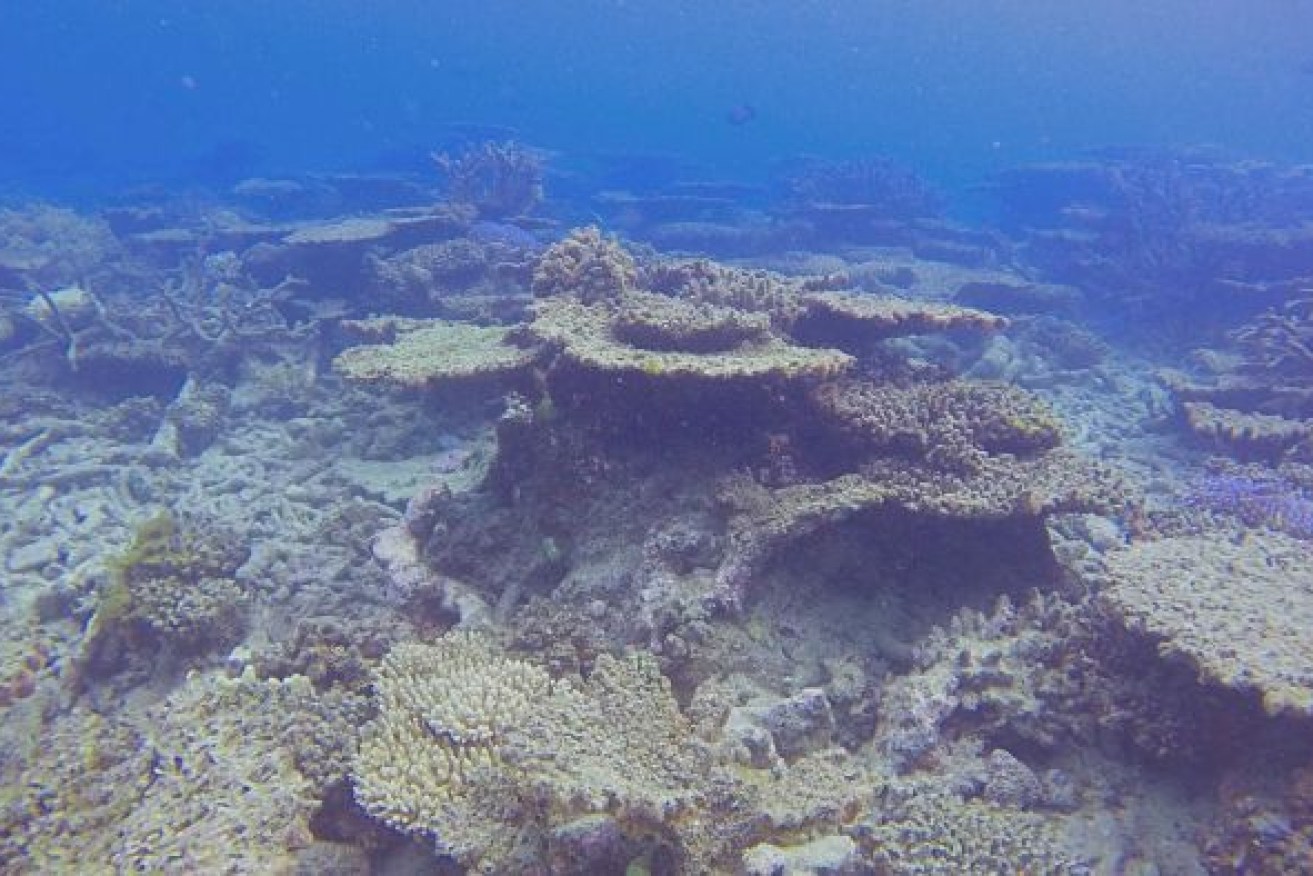Climate pains: Reef regrowth even more vulnerable to cyclones, heat waves, starfish
A scientist whose latest report was used to defend Federal Government efforts to protect the Great Barrier Reef, and respond to climate change, has now issued a stark warning.

The Great Barrier Reef suffered mass coral bleaching events in 2016, 2017 and 2020. (Supplied)
Australian Institute of Marine Science research program director Dr Britta Schaffelke on Friday gave evidence to a Queensland parliamentary inquiry into restrictions on primary industries around the Great Barrier Reef.
Schaffelke said that while her latest report showed some recent recovery on the reef, it was patchy, and the coral growing back was less resilient.
“These corals are also the ones that are most vulnerable to cyclones, to heat waves, and to Crown of Thorns starfish,” Schaffelke said.
“So whenever that next event happens, those corals will probably then die.”
UNESCO threatened to declare the Great Barrier Reef a World Heritage site in danger before lobbying by Federal Environment Minister Sussan Ley gave Australia more time to argue otherwise.
The ABC this week used documents obtained under Freedom of Information laws to show the government directed AIMS to rush the release of the report and help leak aspects to News Corp newspapers. The ensuing headlines included ‘Historic signs of Great Barrier Reef regrowth’ and ‘Reports of the death of the Great Barrier Reef may have been exaggerated’.
The documents showed Schaffelke apparently resisting the intervention and questioning whether her work should be leaked in such a fashion.
In today’s committee hearing, Schaffelke came under intense questioning from One Nation MP Stephen Andrew – who wants to ease restrictions on primary industries – and was asked “if climate change was such an issue how is it recovering?”
Schaffelke reiterated that while the reef had the capacity to recover, it was growing back differently, and there were various pressures on the Great Barrier Reef World Heritage Area, from inshore water quality to global warming.
“We know that climate change is and will continue to be the major driver of change,” she said, adding that the pressures would only get worse.
Labor is expected to use its numbers in parliament to block any attempt to ease environmental restrictions.
The Palaszczuk Government today tabled its 2020 environment summary report, outlining its concerns over the reef’s uncertain future.
“Marine condition has been affected by land management practices and severe weather, such as cyclones and floods, but progress has been made towards meeting water quality targets,” the report states.
“Science shows improving the quality of water flowing to the Great Barrier Reef is critical to building its resilience and enabling it to recover from the effects of a warming climate.”












